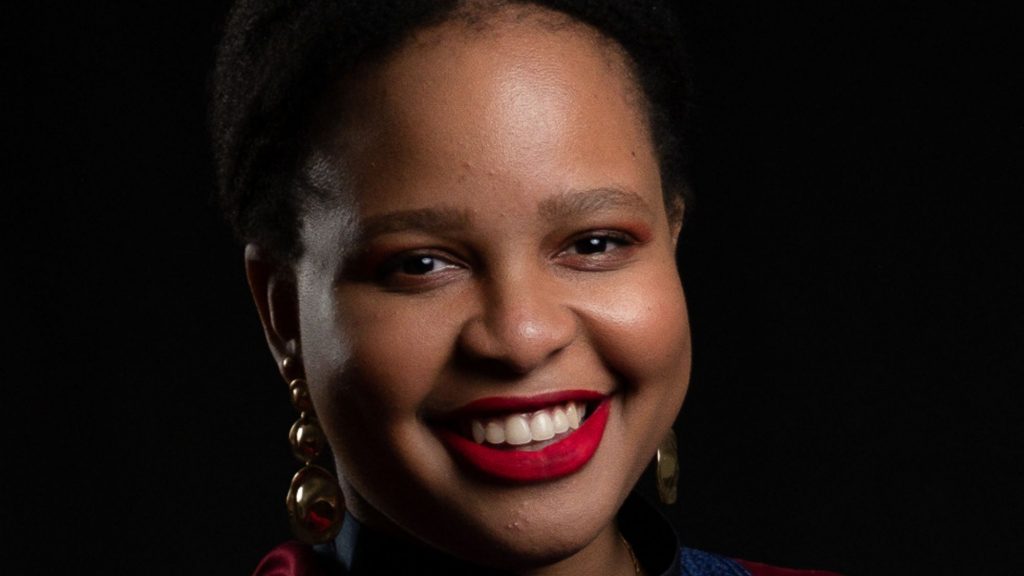We all have them. Those apps we open without thinking. Not because we need anything in particular, but because they feel… safe, in some…
What young Zimbabwean entrepreneurs need to succeed

Anzisha Prize managing editor Didi Onwu travelled to Zimbabwe to document the young entrepreneurs changing the face of business in that country. She shares her reflections regarding the state of youth entrepreneurship and how that reflects similar difficulties facing like-minded youth on the continent.
Operating within a hostile and volatile economy, young Zimbabwean entrepreneurs are determined to build their own pathways to success, but to what end? This article is not aimed at painting a picture of a dire situation but on reflecting the realities of what it takes to be young, hopeful, and stubborn in a country with its fair share of troubles.
In April this year, I travelled to Harare, Zimbabwe, with the Anzisha Prize film crew to meet the young entrepreneurs in our 2022 fellowship program: Tafadzwa Chikwereti, Munyaradzi Makosa and Marvellous Nyongoro.
These three young men showed me during my 10-day long visit with them that stubbornness is not a choice but a necessary trait to succeed as a young entrepreneur in Zimbabwe. At just 23, 22 and 25 years old respectively, they demonstrated why their age was their greatest asset and weapon.
Entrepreneurship in Zimbabwe is highly informal. This is according to a study conducted by the Zimbabwean Scholar Simon Bere titled “The metaeconomics of economic performance and results – Zimbabwe’s economic recovery: The entrepreneurship factor”. He attributes this phenomenon to a collapse in the system, currency crisis and corruption, making it difficult for businesses to operate effectively.
I witnessed this first-hand during my visit.
Even when young entrepreneurs offer great services and products in the country, without enough resources and support, it becomes tough to scale let alone operate. Take 22-year-old Anzisha fellow Tafadzwa Chikwereti: at the age of 19, he started a small company called Musika which linked farmers to buyers through WhatsApp.
eAgro in Zimbabwe
Through this start-up, he learnt that farmers had more deep-rooted problems that relate to their financial stability and their insurance, so he pivoted to his current start-up, eAgro. eAgro fosters resilience and profitability of smallholder farmers by using data analytics and machine learning. Farmers in emerging markets face challenges from low productivity and growth traps due to the risks they face from ongoing climate change, pests, economic turmoil, etc.
It is Tafadzwa’s solutionist-thinking innovations that have the potential to catapult the Zimbabwe economy on a growth trajectory. But they may not achieve their desired success if the system is not improved.
Entrepreneurship the world over is known for its catalytic role in fostering economic development. Amongst incredibly young entrepreneurs this is even more true. Young entrepreneurs are ten times more likely to create employment opportunities for their peers.
Although entrepreneurial activity has increased in many developing countries, many struggle to withstand the challenges and risks of operating in environments unsuitable for supporting entrepreneurship at a career level.
What do I mean by that? Governments, quite frankly, need to do more. And better. “Trying” is no longer an option; definitive action is needed in order for “the future is young” to be believable. Implementing policies that allow young people to easily start a business and register it.
A banking system that favours entrepreneurship and investors who need to start “thinking younger” when it comes to their money. If the future is young, then shouldn’t we start investing in their success? If we don’t, then we are failing them. And that should be a hard pill to swallow.
Entrepreneurship is like rugby, not tennis. The quiet that moves a tennis match forward is the direct opposite for a rugby match to be entertaining and successful. Entrepreneurship is a difficult career choice.
We cannot sugar coat it and we shouldn’t. Whether doing it in an environment that has systems in place for young people to succeed or in an economy that has more red tape, entrepreneurship is not for the faint-hearted.
Like Tafadzwa, Marvellous Nyongoro started the housing hub as a solution to improving the housing system for young people entering universities in Harare. It enables tertiary students in Zimbabwe to book and make payments for off-campus accommodation online. The company employs students as agents, allowing them to earn income through commission.
Since starting, the housing hub has been instrumental in catering to its young users. However, this has not been without its challenges. When Covid-19 hit, the housing hub had to close for a while. However, Marvellous persevered and was able to continue other entrepreneurship pursuits.
“There is really nothing else I’d like to do. Running a business is difficult but the idea of having a 9 to 5 is unappealing to me,” he says. “It is no secret that the Zimbabwean economy is in a tough state, and we need more government interventions for people like me to thrive in such a chaotic environment.”Behind the old English buildings and busy intersections, I began to understand that another story propels Zimbabwe to a better future – young minds at work willing to go the extra mile for their communities.
But they cannot and should not do it alone. They can’t. They too need to live, rest, and enjoy their youth to the fullest. So, again and in closing, governments need to play their part.
- To follow the stories of the young entrepreneurs in the Anzisha Venture Building Program, visit anzishprize.org and subscribe to their YouTube channel.
ALSO READ: Brand loyalty is key for Gen Z and future of spend

